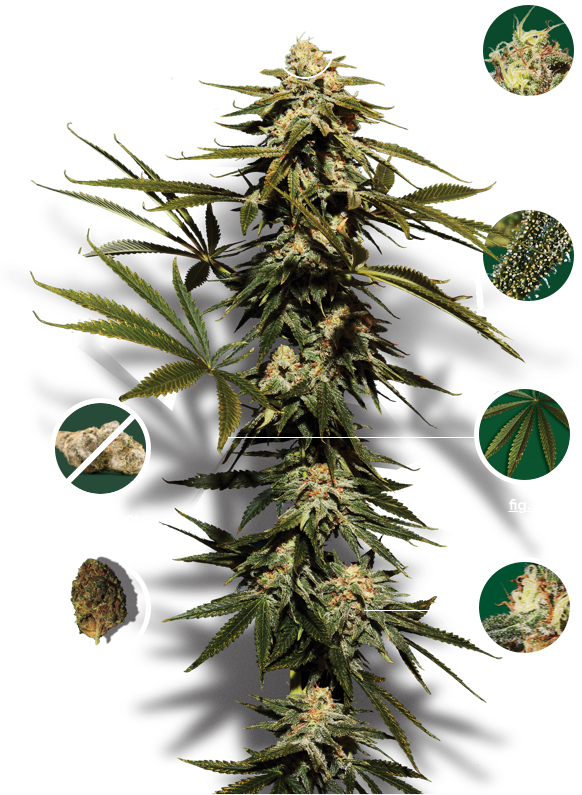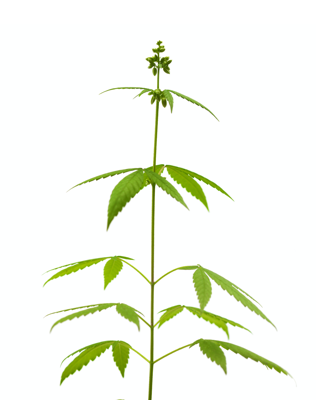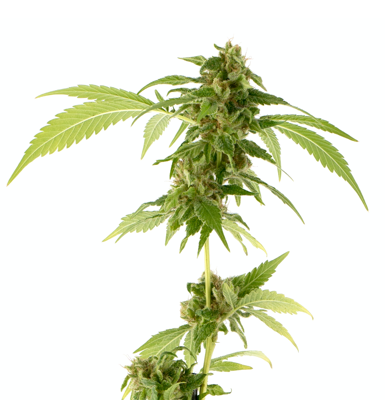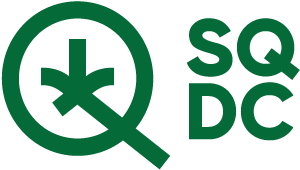Anatomy of the plant
Cannabis is a natural drug obtained from the plant of the same name. When consumed, it has psychotropic and physical effects (acts on the brain and body). Cannabis, which means hemp in Latin, goes by many other names, including marijuana, pot, weed and grass.
What’s the difference between hemp and cannabis?
Cannabis is an annual plant of the same species as hemp. Both belong to the family Cannabaceae. Unlike cannabis, hemp has few if any psychotropic agents (in particular THC) and is mainly used for making textiles, plastics, creams and soaps. The hemp plant is larger than the cannabis plant, sometimes gowing as tall as five or six metres.
Description of the plant
Cannabis plants have various parts, including stems, leaves, flowers and trichomes. Female plants also have pistils and male plants have pollen sacks. While a plant’s appearance may be determined by several factors, it is usually the categories of cannabis – Sativa, Indica or a hybrid of the two – that makes the plant look, respectively, tall and willowy, short and stout or somewhere in between.
Flower (fig. 1)
Often called buds, cannabis flowers can vary in appearance depending on whether they are male or female and Sativa, Indica or hybrid. The colours range widely with the most common being green, orange, red and purple.
The female flower is the part of the plant that is usually consumed to experience the effects attributed to cannabis. This is because the flowers have the highest concentration of cannabinoids.
Trichomes (fig. 2)
Cannabis trichomes contain, in varying quantities, several cannabinoid compounds, predominantly tetrahydrocannabinol (THC) and cannabidiol (CBD). Trichomes appear as tiny crystals all over the plant. They are bigger and denser on the flowers than on the leaves.
Leaf (fig. 3)
The symbol of the cannabis and something of an icon, the leaf is easily recognizable by its fan shape, pronounced venation and serrated leaflets. Leaf colour can range from pale green to dark olive green.
Pistils (fig. 4)
Pistils look like small hairs that are white, orange, red or brown in colour. They are found only on female plants. Their main function is to catch pollen from male cannabis plants.
Terpenes
Different strains of cannabis have different sets of terpenes, which are comparable to essential oils. It is mainly the terpenes that give cannabis plants their particular aromas and flavours.

Male or female plant
Male and female cannabis plants don’t look the same and have different roles.

Male plant
The only function of male plant flowers is to produce the pollen necessary for fertilization. Also, consuming male plants generally doesn’t produce the effects associated with cannabis.

Female plant
Female plants have different-looking flowers with pistils. It is these flowers that are harvested for recreational and medical use, as only they contain cannabinoids in sufficient concentrations to produce psychotropic effects in users.
Three categories
of cannabis
Indica, Sativa and hybrids: what’s the difference? learn more about cannabis categories and hybrids and their many strains.
The effects
of cannabis
Relaxing, stimulating and mood-altering: cannabis can have effects that are pleasant or undesirable. Learn what causes the effects and determines how intense they are and how long they last.
Assistance
resources
Are you or a friend or family member dealing with a problem related to cannabis use? Several assistance resources are available to you. Take advantage of them!
